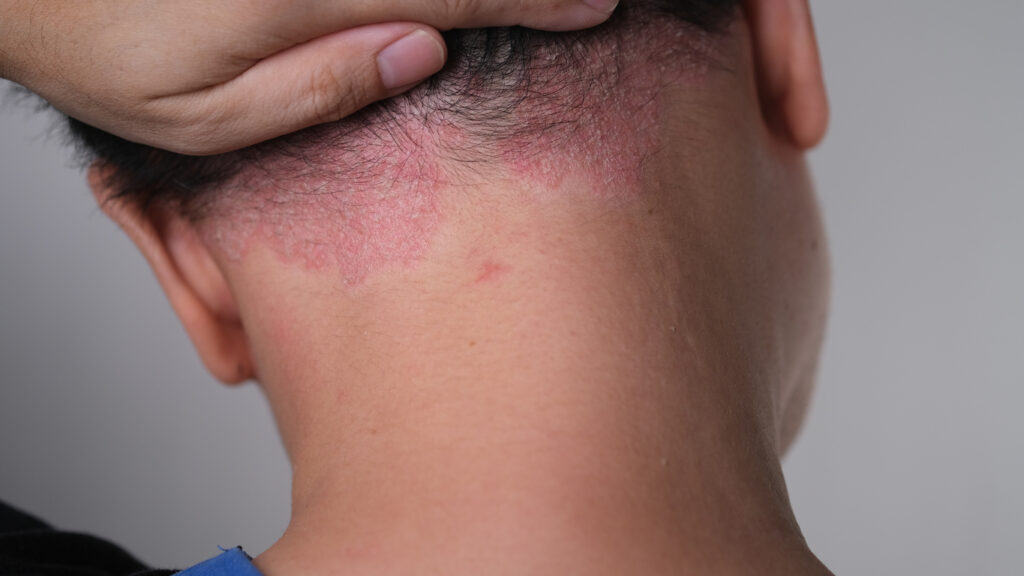Johnson & Johnson’s icotrokinra showed significantly higher rates of overall skin, scalp, and genital psoriasis clearance and a favorable safety profile in adults and adolescents with psoriasis in these high-impact areas, according to a poster presented at DERM2025 in Las Vegas, NV.
In ICONIC-TOTAL, the first Phase 3 study of the investigational oral interleukin (IL)-23 blocker in high-impact-area psoriasis, researchers randomized 311 adults and adolescents (≥12 years to <18 years) with plaque psoriasis (body surface area [BSA] ≥1%; Investigator’s Global Assessment [IGA] ≥2) and at least moderate scalp (scalp-specific IGA [ss-IGA] ≥3), genital (static Physician’s Global Assessment of Genitalia [sPGA-G] ≥3), and/or hand/foot PGA (hf-PGA ≥3) psoriasis to once-daily ICO 200mg or placebo (2:1) through Week 16. Of the patients, 252 had at least moderate scalp, 140 had at least moderate genital (n=140), and 71 had at least moderate hand/foot psoriasis.
The primary endpoint was IGA 0/1 response (Clear [0] or Almost Clear [1] skin and ≥2-grade improvement) at Week 16. Key secondary endpoints included achievement of ss-IGA 0/1, sPGA-G 0/1, and/or hf-PGA 0/1 within applicable participant cohorts, with additional clinician-reported or patient-reported outcomes at Week 16.
Fully 57% of icotrokinra-treated patients hit achieved IGA 0/1 at Week 16, compared with 6% of placebo-treated participants. Icotrokinra-treated patients demonstrated higher response rates vs. placebo for ss-IGA 0/1 (66% vs. 11%), sPGA-G 0/1 (77% vs. 21%), and hf-PGA 0/1 (42% vs. 26%). Patient-reported and clinician-reported improvements in scalp and genital psoriasis were also statistically significant within multiplicity-adjusted analyses. Similar proportions of icotrokinra-treated and placebo-treated participants had ≥1 adverse events, most commonly nasopharyngitis and gastrointestinal-related events (Week 7 through Week 16), the study showed.
“Historically, our injectable biologics were just so much more effective and better tolerated than our oral therapies, and while we’ve made some progress recently in closing that gap, if we’re being honest, our biologics are still superior,” study author Eingun James Song, MD, FAAD, Co-Chief Medical Officer and Director of Clinical Research at Frontier Dermatology in Seattle, WA, tells JDNPPA and TDD.
“With icotrokinra, we finally have a pill that I can confidently say is as effective and well tolerated as our newer biologics, and that’s important because it gives our patients real choices now. While some will still choose injectables, I think many will opt for the familiarity and convenience of a pill.”


